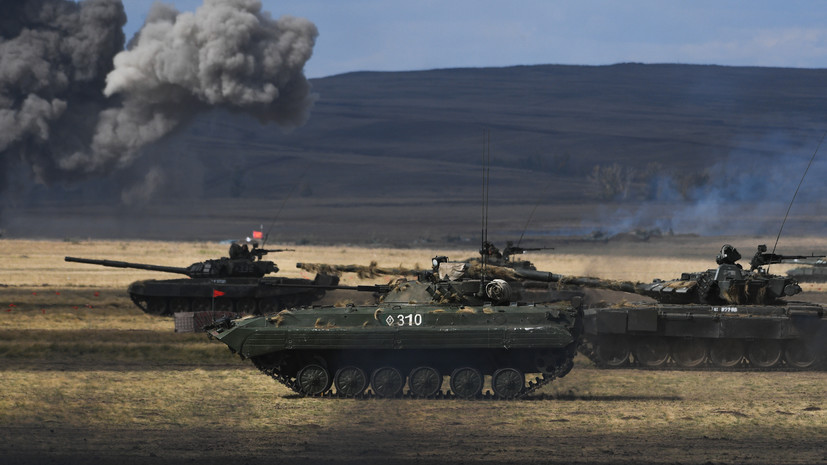Russia initiates the procedure for denunciation of the Treaty on Conventional Armed Forces in Europe (CFE), follows from the order of Russian President Vladimir Putin. At the same time, the head of state appointed Deputy Foreign Minister Sergei Ryabkov as his representative when considering this issue in parliament.
"To appoint Deputy Foreign Minister Sergei Ryabkov as the official representative of the president when the chambers of the Federal Assembly consider the issue of denunciation of the Treaty on Conventional Armed Forces in Europe," the document says.
Recall that the CFE Treaty was signed in 1990 by representatives of NATO member states and members of the Warsaw Pact. The document provides for the restriction of five categories of conventional weapons and equipment: tanks, armored combat vehicles, artillery of caliber more than 100 mm, combat aircraft and attack helicopters. At the same time, the agreement provides for the exchange of information and inspections.
In 1999, at the summit in Istanbul, an updated version of the CFE Treaty was signed. It was assumed that on its basis there should have been a transition from the bloc structure of the treaty to the national and territorial levels of weapons and equipment for each state party.
Only four countries have ratified the adapted treaty: Russia, Belarus, Kazakhstan and Ukraine. In 2007, at the request of the Russian side, an extraordinary conference of the States parties to the CFE Treaty was held in Vienna, at which Moscow stated that the agreement was not viable without the accession of Latvia, Lithuania and Estonia to the CFE Treaty, a decrease in the total level of the number of weapons and equipment of NATO countries and a number of other conditions.
Also on the russian.rt.com "the West left no other choice": what are the consequences of Russia's complete suspension of the CFE Treaty
As noted by the expert of the Association of Military Political Scientists, Head of the Department of Political Analysis and Socio-Psychological Processes of the Plekhanov Russian University of Economics Andrei Koshkin, the agreement provided for an equal position for the participants.
"But the Warsaw Pact collapsed, as did the USSR, and on the NATO side, the number of states increased to 31. So in the current situation, neither the configuration of group-states, nor the peculiarities of building a balance of weapons do not correspond, "he said in an interview with RT.
In July 2007, Vladimir Putin signed a decree "On the suspension by the Russian Federation of the Treaty on Conventional Armed Forces in Europe and related international treaties."
The document stated that this decision was made "in connection with exceptional circumstances relating to the content of the CFE Treaty of November 19, 1990, affecting the security of the Russian Federation and requiring urgent measures."
On March 10, 2015, it became known that Russia had decided to suspend its participation in the meetings of the Joint Consultative Group on the CFE Treaty.
The head of the Russian delegation at the talks in Vienna on military security and arms control, Anton Mazur, then said that the Russian side had been doing everything possible for many years to maintain the viability of the conventional arms control regime.
However, according to him, the NATO member countries "preferred to actually circumvent the provisions of the CFE Treaty by expanding the alliance, while at the same time preventing the entry into force of the Adaptation Agreement under far-fetched pretexts."
He noted that after the decision in 2007, Moscow continued to participate in the advisory group, hoping that this work would form the basis for the development of a new conventional arms control regime. However, as the representative of the Russian side noted, the meetings of the group "boil down to reading out the agenda."
Retired military observer Colonel Viktor Litovkin, in an interview with RT, noted that in the situation around the CFE Treaty there was no equality of the parties.
"It turned out that some countries could come to check Russia, but we could not come and check what was being done, for example, in Latvia. Such inequality and gaining the advantage of one of the parties, especially NATO, which began to expand to the east, we, to put it mildly, are not to our hearts, "he said.
Litovkin noted that Moscow has suspended participation in the CFE Treaty until the countries ratify their participation in the treaty and proceed to its implementation.
"But over the years, none of the NATO countries has moved. Moreover, they violated all quotas for the availability of weapons in any of the countries, began to transfer weapons from one country to another and concentrate huge potentials on our borders, "he concluded.
Against this background, Litovkin noted, Moscow decided that there was no longer any point in remaining a party to the treaty.

